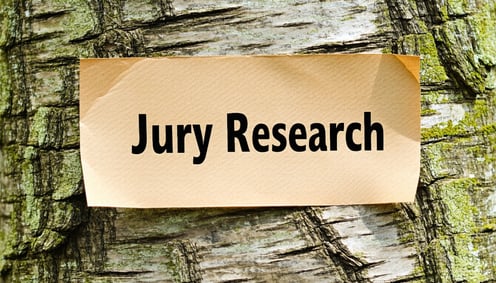
“The most important thing in communication is hearing what isn’t said.”- Peter Drucker
If you’ve ever walked out of a courtroom, surprised by a jury verdict, you’re not alone. Trials are unpredictable, not because the law is unclear, but because jurors don’t see cases the way lawyers do. That’s where jury research comes in. Focus groups and mock trials help us move beyond guesswork and into real-world insight. It’s no longer just a “nice to have”- in many cases, it’s essential.
Seeing Your Case Through a Different Lens
Litigators live with our cases. They know every fact, every document, every witness. But jurors come in with a clean slate. What sticks with them? What confuses them? What do they care about most?
Jury research gives you those answers. It shows how real people, without a law degree, react to your themes, your witnesses, and your overall story. And that can be incredibly eye-opening. What seems like your strongest point may fall flat. What you thought was a non-issue might be a deal-breaker. It’s better to learn that now, not after closing arguments.
Sharpening the Story
Every case has a story. Jury research helps you figure out how to tell it in a way that actually connects. Maybe jurors are more moved by the timeline than the testimony. Maybe they respond better when the defendant shows vulnerability. Maybe your expert comes across as too confident.
These sessions let you test, tweak, and fine-tune your approach, from opening to closing. It’s not about being slick, it’s about being clear, credible, and relatable.
Avoiding Tunnel Vision
It’s easy for legal teams to fall into groupthink. When everyone on the case sees things the same way, there’s a risk of missing blind spots. Jury research breaks that cycle. It brings in fresh, honest perspectives, and sometimes those perspectives are tough to hear. But that’s the point. You want to hear them before trial, when you still have time to adjust.
More Than Just Trial Prep
Jury research isn’t just about getting ready for court. It can also help drive smarter settlement decisions. When you have actual feedback from people who could sit on your jury, you’re in a stronger position to evaluate risk, manage client expectations, and negotiate from a place of insight, not assumption.
A Sign of Preparation and Professionalism
There’s growing recognition that in complex or high-value cases, not doing jury research could be seen as falling short. It’s becoming part of what it means to prepare thoroughly and represent your client competently. That doesn’t mean every case needs a full-blown mock trial, but when the stakes are high, it’s worth asking: What do we really know about how this will play?
Doing It Right
Of course, it’s not just about doing jury research; it’s about doing it well. That means selecting diverse and representative participants, keeping the process neutral, and listening with an open mind. It also means respecting boundaries, ethically and practically. This is a tool for insight, not influence.
Bottom Line
Jury research doesn’t guarantee a win. But it makes you smarter, sharper, and better prepared. It helps you speak your audience’s language. And it can be the difference between thinking your case is persuasive and knowing that it is.
Because in the end, great lawyering isn’t just about knowing the rules. It’s about understanding people. And jury research helps you do exactly that.
Recent Articles by Our First Court Team:
Tags:
Jury Research
Jul 30, 2025 4:24:20 PM


.jpg?width=520&height=294&name=Blog%20Post%20Images%20(1).jpg)
.png?width=520&height=294&name=Blog%20Post%20Images%20(1).png)

Comments